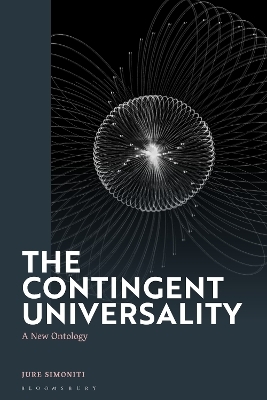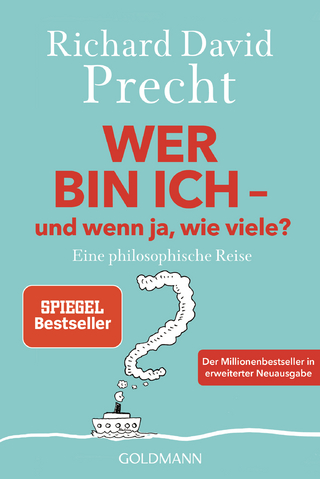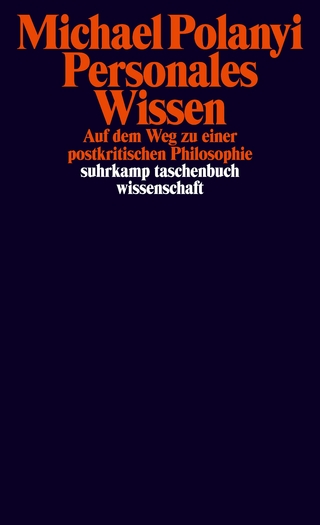
The Contingent Universality
A New Ontology
Seiten
2025
Bloomsbury Academic (Verlag)
978-1-350-51472-0 (ISBN)
Bloomsbury Academic (Verlag)
978-1-350-51472-0 (ISBN)
- Noch nicht erschienen (ca. Mai 2025)
- Versandkostenfrei
- Auch auf Rechnung
- Artikel merken
There may exist something like the most unbearable of all philosophical thoughts. It is the thought of contingency and universality converging, intersecting, and being one and the same thing, approached from two different perspectives. Hardly anything is as unsettling as the insight into the absolute contingency of the emergence of universals, and the correlative realization that the only true universality is one of the contingency of everything. The goal of this book is to think this unbearable thought through to the end and face up to its most binding and disconcerting consequences.
The history of science is full of theoretical unifications of two previously mutually exclusive concepts or two opposite realms (natural and unnatural motion in Galilei, terrestrial and celestial physics in Newton, man and animal in Darwin, electricity and magnetism in Maxwell, mass and energy, space and time, acceleration and gravity in Einstein, etc.). This book is based on the conjecture that what philosophy is lacking is a similar unification of the concepts of “contingency” and “universality.” The book will thereby try to accomplish an operation that is implicit in the philosophy of Slavoj Žižek. In doing so, it will provide new answers to questions on the nature of contingency, necessity, predictability of the future, the validity of the laws of nature, the role of singularity in relation to universality, chaos and order, reality and truth. These answers will differ starkly from the ones advocated by contemporary philosophers such as Badiou, Meillassoux, some other speculative realists, and some analytical philosophers of science.
The history of science is full of theoretical unifications of two previously mutually exclusive concepts or two opposite realms (natural and unnatural motion in Galilei, terrestrial and celestial physics in Newton, man and animal in Darwin, electricity and magnetism in Maxwell, mass and energy, space and time, acceleration and gravity in Einstein, etc.). This book is based on the conjecture that what philosophy is lacking is a similar unification of the concepts of “contingency” and “universality.” The book will thereby try to accomplish an operation that is implicit in the philosophy of Slavoj Žižek. In doing so, it will provide new answers to questions on the nature of contingency, necessity, predictability of the future, the validity of the laws of nature, the role of singularity in relation to universality, chaos and order, reality and truth. These answers will differ starkly from the ones advocated by contemporary philosophers such as Badiou, Meillassoux, some other speculative realists, and some analytical philosophers of science.
Jure Simoniti is a Researcher at the University of Ljubljana, Slovenia.
Introduction: Contingency and Universality Coinciding
1. When Did Universality Become Contingent?
2. Žižek’s Detours on the Path to Contingent Universality
3. The Neglected Historical Origins of Contingent Universality. The Revolutions of Modern Science
4. Towards a New Ontology of Contingent Universality
5. Eleven New Truths About the World
| Erscheint lt. Verlag | 15.5.2025 |
|---|---|
| Zusatzinfo | 10 bw illus |
| Verlagsort | London |
| Sprache | englisch |
| Maße | 156 x 234 mm |
| Themenwelt | Geisteswissenschaften ► Philosophie ► Metaphysik / Ontologie |
| Geisteswissenschaften ► Philosophie ► Philosophie der Neuzeit | |
| ISBN-10 | 1-350-51472-1 / 1350514721 |
| ISBN-13 | 978-1-350-51472-0 / 9781350514720 |
| Zustand | Neuware |
| Informationen gemäß Produktsicherheitsverordnung (GPSR) | |
| Haben Sie eine Frage zum Produkt? |
Mehr entdecken
aus dem Bereich
aus dem Bereich
eine philosophische Reise
Buch | Softcover (2024)
Goldmann (Verlag)
CHF 19,55
Auf dem Weg zu einer postkritischen Philosophie
Buch | Softcover (2023)
Suhrkamp (Verlag)
CHF 53,20


